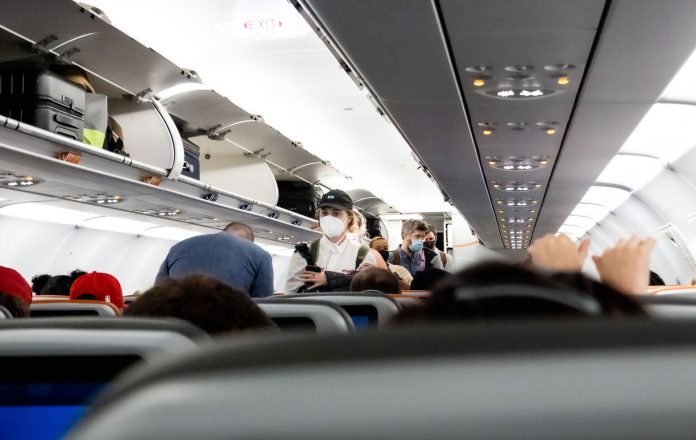
Americans who are fully vaccinated can travel “at low risk to themselves,” both within the United States and internationally, but they must continue to take precautions like wearing a mask in public, avoiding crowds, maintaining social distancing and washing hands frequently, federal health officials said Friday.
Vaccinated Americans do not need to get a coronavirus test before arriving in another country, unless required to do so by authorities at the destination, and they do not need to quarantine after returning to the United States unless required to do so by local jurisdictions, according to new recommendations from the Centers for Disease Control and Prevention.
But vaccinated travelers should have a negative result from a coronavirus test before boarding a flight back to the United States, and they should get tested again three to five days after their return home. The recommendation is predicated on the idea that vaccinated people may still be infected with the virus.
People are considered fully vaccinated two weeks after receiving the single-dose Johnson & Johnson vaccine, or two weeks after receiving the second dose of the two-dose regimen from Pfizer-BioNTech or Moderna.
The new advice adds to guidance issued in early March saying that fully vaccinated people may gather in small groups in private settings without masks or social distancing, and may visit with unvaccinated individuals from a single household as long as they are at low risk for developing severe disease if infected with the virus.
The recommendations issued Friday do not alter the CDC travel guidelines for the unvaccinated. The agency continues to discourage nonessential domestic travel by those who are not fully immunized, saying that if they must travel, they should be tested for coronavirus infection one to three days before their trip and again three to five days after concluding their trip. Unvaccinated travelers should self-quarantine for seven to 10 days if they do not get tested after a trip, the agency said.
The CDC’s guidance does not change the fact that many countries, including those in the European Union, still block most Americans from coming. Some are starting to make exceptions for those who are vaccinated. As of March 26, fully vaccinated Americans who can present proof of vaccination can visit Iceland, for example, and avoid border measures such as testing and quarantining, the country’s government said.
Some destinations and cruise lines already have started requiring that travelers be fully vaccinated. Royal Caribbean is requiring cruise passengers and crew members 18 or older to be vaccinated in order to board its ships, as are Virgin Voyages, Crystal Cruises and others.
For the moment, airlines are not requiring vaccinations for travel. But the idea has been much talked about in the industry.
Air travel bookings have been slowly increasing as more Americans get vaccinated. But it is mostly flights to and from small, regional vacation-destination airports that have been thriving, while large hub airports are seeing just a fraction of the travelers they did at this time last year. The new CDC guidance is likely to boost air travel, but it will take until 2023 and 2024 before there is a return to the volumes of 2019, according to Airlines for America, an industry group.
On Thursday, the Transportation Security Administration reported more than 1.5 million travelers going through security checkpoints at airports, with the number of travelers increasing since early- to mid-March. While that is a significant increase compared with the 124,000 travelers a year ago, it is still 35% less than it was in 2019.
On Sunday, nearly 1.6 million passengers boarded domestic flights, the most on any day since the pandemic began.













